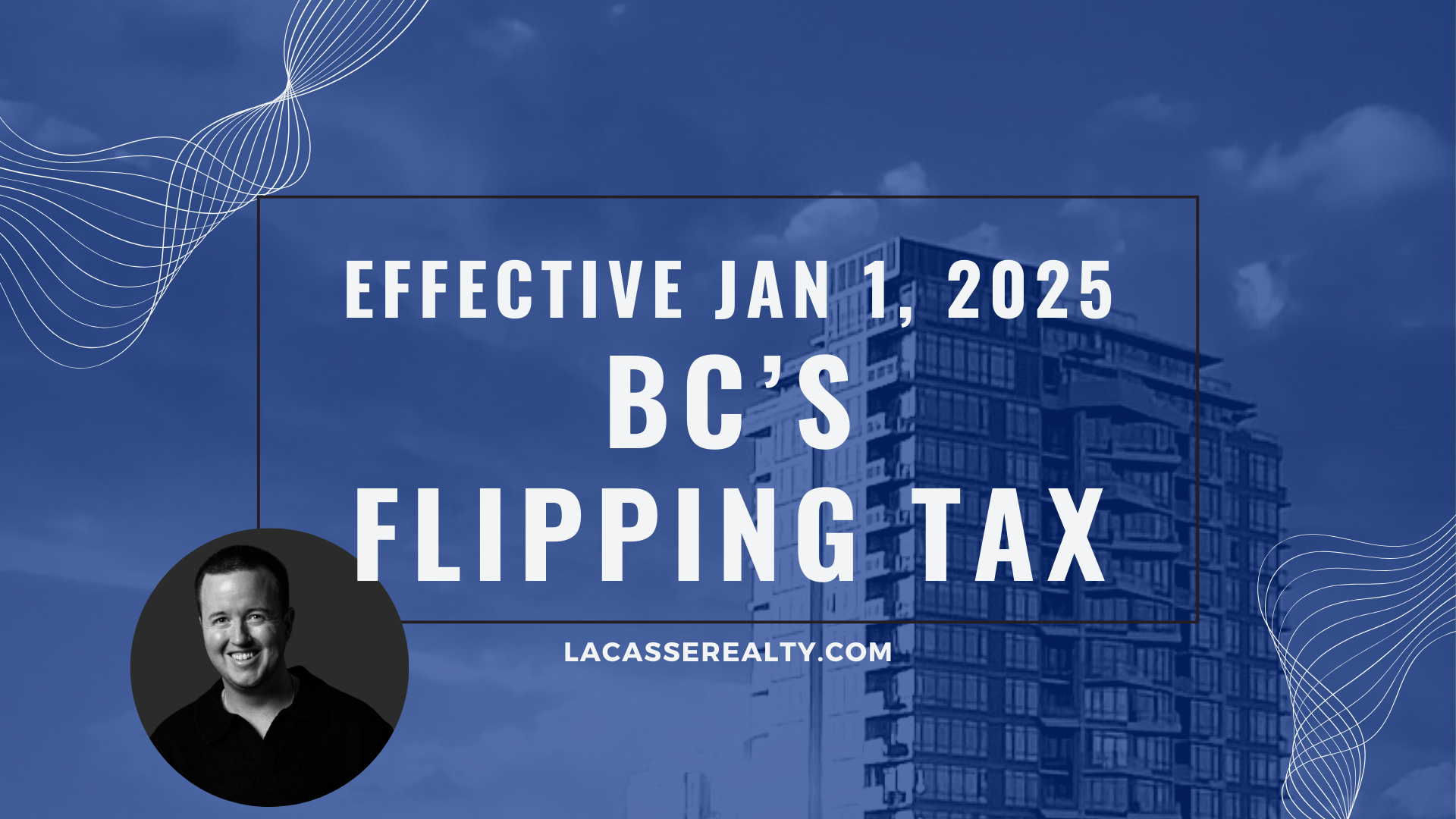Understanding BC’s New Home Flipping Tax: What You Need to Know
The BC government introduced the Home Flipping Tax in early 2024, a move aimed at curbing speculative activity in the housing market. This new measure could have significant implications for property owners, investors, and even some regular homeowners. That tax is now applicable so let’s break it down and see what it means for you.
What is the BC Home Flipping Tax?
The Home Flipping Tax, effective for property sales on or after January 1, 2023, is part of British Columbia’s broader effort to create housing affordability. This tax applies to individuals who sell a property that they’ve owned for less than 2 years (729 days), with certain exemptions for life events.
How Does It Work?
If you sell a residential property within 729 days of purchase, profits made from the sale will be taxed as business income. This means the profit won’t qualify for the principal residence exemption that typically allows homeowners to sell their primary residence tax-free, although sellers that owned their home for more than 1 year and used their home as a primary residence at some point during that period MAY be eligible for a $20,000 principal residence exemption.
How to calculate taxable income;
Proceeds from sale of property
(-)cost to purchase property
(-)cost to improve property
(-)principal residence exemption (if applicable)
______________________________________
= Taxable Income
How to calculate tax rate;
If you own the property for less than 366 days, the tax rate is 20%.
If you own the property for more than 365 days and less than 730 days, the tax rate is reduced until it reaches zero according to the following formula:
Tax rate = 20% × [ 1 - ( (Days held - 365) / 365) ]
Exemptions to the Tax
The government recognizes that not all short-term sales are speculative. Some key exemptions include:
Divorce or separation
Job relocation (minimum 40 km move)
Health-related reasons
Death in the family
Threat to personal safety (e.g., domestic violence)
Insolvency or significant financial hardship
Natural disasters
These exemptions ensure that people experiencing genuine hardships or life changes aren’t unfairly penalized.
Who Does This Impact?
Investors
If you’ve been flipping homes as part of your investment strategy, this tax is a game-changer. Any profit made within the 2 year period will now be subject to the above tax rates, which could make some flips less profitable. This is particularly important for those who rely on the principal residence exemption as part of their tax planning.
Homeowners
Regular homeowners might also be affected, especially if life circumstances force an unplanned move. While exemptions exist, you’ll need to provide documentation to qualify, so be prepared to prove your case if necessary.
Prospective Buyers
For buyers, the tax could reduce speculative activity in the market, potentially leading to less competition and more stable pricing. However, the broader impact on overall housing affordability remains to be seen.
What Does This Mean for the Market?
The goal of the Home Flipping Tax is to discourage speculative flipping and stabilize the housing market. While it might deter some investors, it could also encourage longer-term homeownership, contributing to a healthier housing supply. That said, the tax is just one piece of the puzzle that the NDP’s are adding to try and address affordability challenges in BC.
How to Navigate the New Rules
If you’re planning to buy or sell a home in BC, here’s what you can do to stay ahead:
Plan for the Long Term: If you’re purchasing a home, consider whether it’s a place you can see yourself staying in for at least a year.
Understand Your Tax Obligations: Work with a tax professional to understand how the Home Flipping Tax might affect your finances, especially if you’re an investor.
Keep Documentation: If you think you might qualify for an exemption, make sure to keep thorough records of the life event prompting your sale.
Work with a Realtor: Navigating these new rules can be complex, so having an experienced realtor on your side will help you make informed decisions.
Let’s Build Your Strategy
Whether you’re buying, selling, or simply planning your next move, working with someone that keeps up with the newest regulations in housing is crucial. Let’s sit down and develop a strategy that works for your unique situation.
Reach out today:
Email: kadelacasse@gmail.com
Call/Text: 604-401-9199
Book directly into my calendar HERE




